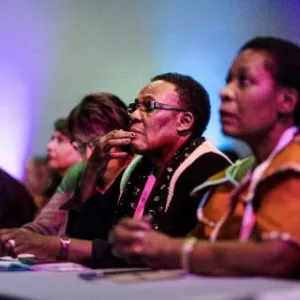How is economic security linked to violence against women and children? New insights from the Sexual Violence Research Initiative Forum 2022
Poverty is a well-established risk factor for violence against women and children—but how much do we really know about this relationship and how to effectively break the cycle? We round up evidence from the recent biannual Sexual Violence Research Initiative (SVRI) Forum held in Cancun to highlight what is new and where we go next. Poverty is a recognized risk factor for

How is economic security linked to violence against women and children? New insights from the Sexual Violence Research Initiative Forum 2022
Poverty is a well-established risk factor for violence against women and children—but how much do we really know about this relationship and how to effectively break the cycle? We round up evidence from the recent biannual Sexual Violence Research Initiative (SVRI) Forum held in Cancun to highlight what is new and where we go next.
Poverty is a recognized risk factor for multiple forms of violence against women (VAW) and violence against children (VAC). Programming to reduce economic insecurity is also highlighted as a key strategy globally for prevention of both VAW and VAC (see WHO and partners’ RESPECT and INSPIRE strategies). But rigorous impact evaluations measuring violence tend to focus on a small subset of poverty reduction strategies (including social assistance and cash transfers). Because poverty reduction interventions often operate at scale, there are huge potential benefits to better understanding their relationships with VAW and VAC. However, doing this well may require collaboration across disciplines between public health experts and development economists who often evaluate poverty-focused interventions.
The Sexual Violence Research Initiative (SVRI) biannual forum is the premier international conference on VAW and VAC, bringing together researchers, implementers, activists, and funders to discuss the latest evidence and practice. SVRI is a leader in driving the violence prevention agenda and translating evidence into policy, and thus the forum sets the tone for new developments in the field. As members of the multidisciplinary Cash Transfer and Intimate Partner Violence Research Collaborative (hosted by IFPRI), we closely followed the diverse presentations on the role of economic strengthening—including but not limited to cash transfers—for violence prevention (see our roundup of the 2019 SVRI here).

